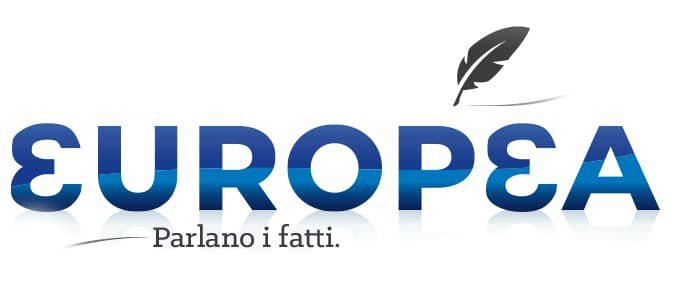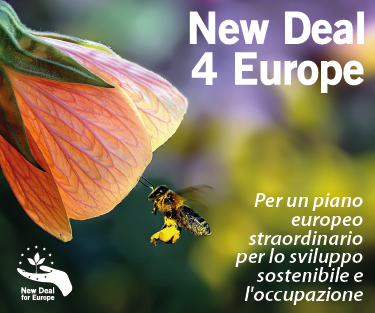Di fronte all'avanzata dei partiti populisti ed all'effetto domino dei controlli introdotti alle frontiere interne dello spazio Schengen, da ultimo quelli minacciati dall'Austria, mentre si da per chiusa la rotta balcanica, si ritiene erroneamente che i migranti, che non potranno risalire verso i paesi dell'Europa settentrionale, si sobbarcheranno il passaggio in Egitto ed in Libia per raggiungere l'Italia. Da questa errata considerazione si ricava il rischio che dalla Siria o dai campi del Libano e della Giordania, se non addirittura dalla Turchia, milioni di profughi potrebbero riversarsi sull'Italia, attraversando il Mediterraneo. Pochi gli arrivi dalla Turchia, a conferma che non ci potrà essere un travaso dalla rotta balcanica a quella mediterranea.
http://palermo.repubblica.it/cronaca/2016
Violazioni dei diritti umani e blocco violento dei migranti sono ormai un unica prassi di polizia, da Idomeni, all'Egitto ed al deserto del Sahel.
Si nega così che l'aumento degli arrivi dall'Africa verso l'Italia sia dovuto alle crisi ambientali che devastano quei territori ed alle guerre o ai conflitti interni alimentate dagli interessi occidentali, che cancellano le deboli democrazie ed affidano a gruppi di miliziani, spesso lautamente retribuiti come contractors, un potere di vita di morte sulle popolazioni civili.
http://dirittiumani1.blogspot.it/2016/04/hrw-la-polizia-del-sudan-sta-usando-lo.html?m=1
Dopo il fallimento della Conferenza di Malta del novembre dello scorso anno, di fronte alla minaccia dell'Austria di "chiudere" la frontiera del Brennero, Renzi ed il governo italiano, spalleggiati come al solito dalla Commissaria UE Mogherini,con la nuova formula magica e del tutto incomprensibile del "Migration Compact" rilanciano il Processo di Khartoum e preparano nuovi accordi con i governi militari che in Africa, e non solo,opprimono già la propria popolazione e che adesso su commissione dell'Unione Europea, dovrebbero bloccare i migranti in transito o in partenza.
http://www.governo.it/sites/governo.it/files/immigrazione.pdf
Il modello perverso dell'accordo tra Unione Europea e Turchia dovrebbe essere esteso adesso ai principali paesi africani dai quali parte o transita il maggior numero di migranti. Questa la reale portata degli accordi ispirati dal patto tra la Merkel ed Erdogan.
http://www.statewatch.org/news/2016/apr/eu-limite-docs-15-4-16.htm
Si ignora la reale situazione in Libia e si apre la strada per un intervento militare, magari su richiesta del governo sostenuto dalle Nazioni Unite, come già si dichiara da parte del governo italiano. Senza calcolare minimamente che altri sono pronti a dividersi la Libia. L'Egitto di Al Sisi, sempre più come potenza regionale arbitra del conflitto libico. I piani di occupazione sono già pronti.
http://weekly.ahram.org.eg/News/16080/19/Libya%E2%80%99s-fourth-phase.aspx
Nel Migration Compact si ripropone uno scambio tra persone, armamenti e soldi, basato su una rete di rapporti commerciali che si vuole instaurare con un uso distorto della cooperazione internazionale, finalizzata al blocco della mobilità umana, piuttosto che ad una crescita dei territori ed a una loro stabilizzazione nel segno della pace e della democrazia.
Lo scontro tra religioni che si evoca dopo ogni attentato risulta funzionale a nascondere i reali rapporti economici che producono i conflitti e cancellano ogni tentativo di risposta democratica alle crisi. I dittatori non stabilizzano i territori e non bloccano i migranti, tanto in Africa che in Medio Oriente. Cercano solo di arricchirsi e di schiacciare le opposizioni democratiche.
http://www.corrieredellemigrazioni.it/2015/03/24/processo-di-khartoum-sapete-cose/
http://www.stripes.com/opinion/dictators-don-t-stabilize-the-mideast-1.404515
Nel Migration Compact si rilancia un progetto di stabilizzazione eterodiretta della Libia che, a partire dall'intervento militare in acque libiche, appare già fallito in partenza, dopo essere stato rinviato di mese in mese per il mancato assenso del Consiglio di sicurezza dell'ONU. Come conseguenza delle proposte italiane contenute nel Migration Compact e delle peggiori prassi europee,si verificherà di fatto la cancellazione del diritto di asilo europeo, e della stessa Convenzione di Ginevra del 1951, che impongono un accesso libero al territorio, senza limiti numerici e senza differenziazioni nazionali, per tutti coloro che vogliono proporre una istanza di protezione internazionale.
Se infatti si estenderà anche a diversi paesi africani, come la l'Egitto, la Libia, il Gambia la Nigeria, il Sudan e magari anche l'Eritrea o l'Etiopia, se non il Pakistan o l'Afghanistan, la qualifica di "paese terzo sicuro", come si è fatto con la Turchia, si aprirà la strada per la detenzione indiscriminata dei migranti intrappolati in questi paesi, che a questo punto sarebbe qualificati tutti come "migranti economici" e per un ritorno alle procedure di respingimento collettivo e di respingimenti "par ricochet", come si sta verificando in queste settimane tra la Grecia e la Turchia e tra la stessa Turchia verso paesi come l'Afghanistan e la Siria. Da questo punto di vista diventerà essenziale il ruolo di Frontex e delle future agenzie che si dovrebbero istituire sulle sue ceneri. Il corpo della Guardia Costiera europee e la Polizia europea delle frontiere. In molti vorrebbero contare sui paesi di transito per legittimare respingimenti collettivi ed arresti di massa, magari con la istituzione di "centri di accoglienza" nei paesi del nord-africa. Qualunque autorita' nazionale, militare o politica che si dovesse opporre a questo disegno rischia di essere rimossa sotto la spinta di un partito trasversale che punta sul dilagare della paura e sulla disinformazione di massa. Il recente scandalo che sta coinvolgendo i vertici della Marina Militare, da sempre contraria alla pratica dei respingimenti collettivi in mare, e da tempo criticata da Frontex e dai partiti della destra populista, potrebbe inquadrarsi in questo disegno.
http://www.a-dif.org/2016/04/14/nigeria-gli-orfani-di-petrolio-e-i-trafficanti-di-polli/
Nessuna enunciazione astratta dei diritti fondamentali della persona, come i tanti passaggi contenuti nella Risoluzione approvata la scorsa settimana dal parlamento Europeo potrà mai garantire con qualche effettività i diritti umani che saranno violati se si chiuderanno accordi con paesi dominati da feroci dittature militari, dove anche il dissenso interno viene represso con le torture e le sparizioni forzate. In questi paesi ai migranti in transito non potrà che essere riservata la sorte di schiavi invisibili da commerciare a piacimento con l'avallo dei piani dell'Unione Europea e dei paesi che sostengono il Processo di Khartoum.
http://www1.wdr.de/daserste/monitor/extras/monitorpresse-ostafrika-100.html
I trafficanti guadagneranno sempre di più e le violenze subite dai migranti sulle rotte clandestine che saranno costretti a seguire saranno innumerevoli. Come i morti ed i dispersi in mare. Dei quali nessuno ha pietà. I trafficanti saranno sconfitti dalle popolazioni locali, non certo dai droni americani, o dalle navi di Frontex. Anche se adesso Frontex rilancia l'uso dei droni.
http://www.intrasformazione.com/index.php/intrasformazione/article/view/223/pdf
Leggete bene, in queste righe troverete la fine del diritto di asilo europeo e della stessa idea unificante di Europa come uno spazio caratterizzato dallo stato di diritto e dal riconoscimento del principio di non discriminazione e dei diritti fondamentali della persona umana.
Neanche un paragrafo è dedicato ai migranti che cercano asilo in Europa.
Le possibilità di ingresso legale sono circoscritte al massimo, la Fortezza Europa non concede alternative per la maggior parte dei migranti costretti ad ingresso irregolare. Se si fanno accordi con le dittature, se si legittimano i respingimenti che comportano arresti arbitrari e torture, prima o poi le pratiche violente da parte delle autorità amministrative si diffonderanno come un cancro anche nei nostri territori. E segnali inquietanti di questa metastasi, che si concretizza nella impunità degli abusi commessi, si continuano a sommare giorno dopo giorno. Come conferma la sentenza di assoluzione sul caso Uva e la voluta mancanza in Italia del reato di tortura..In Europa sono di nuovo attivi i campi di concentramento.E sono a rischio anche le libertà civili.
https://revolution-news.com/eu-detains-29-volunteers-for-working-with-refugees-in-greece/
https://www.hrw.org/news/2016/04/14/greece-asylum-seekers-locked
Questo il Migration Compact
http://www.governo.it/sites/governo.it/files/immigrazione.pdf
ITALIAN NON-PAPER
MIGRATION COMPACT
Contribution to an EU strategy for external action on migration
1. INTRODUCTION
The unprecedented phenomenon of growing migratory flows towards Europe is expected to last for decades due to various geopolitical dynamics in the neighbourhood and beyond (mainly Middle East and North Africa, Sahel, Horn of Africa): security challenges and regional instability, deterioration of economic and social environment, poverty and unemployment, climate change, etc. The migratory challenge is seriously jeopardising the fundamental pillars of European integration (e.g. integrity of the Schengen area) and solidarity among Member States. The complexity of such a challenge is linked to the mixed nature of the flows (both refugees and economic migrants). Actions taken in the Eastern route have to deal with mixed flows with a greater component of refugees due to the civil war in Syria. Flows through the Central/Western Mediterranean route are composed mainly by economic migrants and are expected to last in the medium-long term. The EU should be ready to cope with both challenges
(the second is expected to last for decades) as well as with the opening of other possible routes (eg. north-east).
At the same time, if well managed, migration may represent an opportunity both for the EU and partner countries, in terms of economic growth and development, and for an ageing Europe in terms of sustainability of social security systems.
2. LESSONS LEARNED
Most recently a number of initiatives and legislative proposals have been discussed at EU level to address the challenge, mainly focusing on the EU internal dimension, such as: the establishment of the European Border Guard; the reform of the Common European Asylum System which should feed into ambitious legislative proposals; the Decisions on relocation adopted in 2015; the intention of the Commission to not take into account the costs for the management of the current crisis under the Stability and Growth Pact; the Communication “Back to Schengen” and the recent proposals on “Smart Borders”.
However such measures only constitute components, even though important ones, of the more comprehensive response needed which so far does not yet directly address the external dimension of our migration policy. In order to be effective such internal measures need to be complemented with a stronger joint external action. The outburst of the migratory crisis highlighted the need to overcome fragmentation of available EU external action tools and to upgrade the Global Approach to Migration and Mobility, revise the EU-ACP partnership, and further develop the pathways offered by the Valletta Action Plan, by the EU-Turkey agreement and by the existing Dialogues the EU is promoting at regional level (such as the Khartoum and Rabat Processes).
In order to design a reinforced external action strategy on migration it is urgent to carry out a comprehensive analysis of all existing instruments and actions with the aim to highlight the strengths and weaknesses of the existing framework and consequently reorient the EU programming and planning.
The recent EU/Turkey agreement represents the first attempt to initiate a large-scale cooperation with a third country and has shown that it is possible to use existing tools and budget in an innovative way.
All existing initiatives and instruments in the field of external action should be directed (in a coherent way with the internal ones) to developing an active strategy, focussing first and foremost on African countries of origin and transit.
3. THE WAY FORWARD: “THE FAIR GRAND BARGAIN”
The first step of the strategy should concern the identification of key partner countries to cooperate with on migratory issues and the definition of the kind of cooperation to develop with each of them. A matrix should be defined, on the basis of different migratory features of each country (origin, transit, origin and transit) and be adapted according to the characteristics of the country (e.g: economic and social trends, security, climate change, etc..). The Country Fiches prepared by the Commission and the EEAS are a good starting point and an example of interinstitutional cooperation which is much needed to improve our approach. Such a mapping should be accompanied by a thorough needs assessment to be carried out together with the third country, in a genuine spirit of co-ownership, and should become the basis for Country Specific Action Plans for an enhanced Partnership.
The EU should upgrade its commitment on priorities identified by the third country, while the latter should upgrade its commitment on priorities identified by the EU.
3.1 The EU may offer:
- Investment Projects with a high social and infrastructural impact to be identified together with the partner country as a crucial incentive for enhancing cooperation with the EU. To that end, programming of external action financial instruments (EDF, DCI, ENI, etc…) should be reoriented and a new EU Fund for Investments in third countries should be established.
- "EU-Africa bonds" to facilitate the access of African countries to capital markets (with a medium-to-long-term perspective in order to ensure capital availability for growth and sustainable prosperity schemes), as well as other innovative financing initiatives (facilitating remittances and their re-investment and blending mechanisms, etc.), in synergy with the EIB1 and other European and international financial organizations.
- Cooperation on security: mainstreaming migration (border management/control, customs, criminal justice, management of migrants and refugees in line with international standards) in the mandate of existing and future CSDP missions in Africa (Sahel; a reflection could also be conducted for the Horn of Africa). The logical next step in this process would be a regional grouping of missions to better manage a phenomenon that, by definition, has a “cross-border” dimension. Support should also be ensured to existing regional processes aimed at regional cooperation in security and migration domain (e.g. the G5 Sahel). This approach should go alongside the practical implementation of the Capacity Building for Security and Development concept (“CBSD”), coupling training with adequate equipment.
- Legal migration opportunities, building upon the pillars set out at the Tampere European Council in 1999, as an incentive that could include: entry quotas for workers, information on job opportunities in Europe for third countries nationals, pre-departure measures (including language and vocational training) in collaboration with European companies ready to employ manpower from third countries, matching of demand and supply of jobs, professional and social integration in the host Member States, Erasmus Plus programmes for students and researchers. Initiatives on circular migration as well as south-to-south migration opportunities should be further explored.
- Resettlement schemes as compensation for the burden on those countries that engage in establishing national asylum systems in line with international standards.
1 See European Council Conclusions, 17-18 March 2016, doc. 12/1/16.
3
3.2 The EU may ask:
- Commitment on effective Border Control and reduction of flows towards Europe. The EU should help with "capacity building" initiatives and supply of equipment and technologies. Third countries should also engage in Search and Rescue activities. The European Border Guard, within its new mandate, has to step up the cooperation with third countries and have a coordinating role.
- Cooperation on returns/readmissions, focusing on operational agreements, reciprocal posting of liaison officers in third countries and Member States to speed up identification and issuing of travel documents. The EU should fund these secondments as well as reintegration programmes for returnees. The third country should accept repatriations also via charter flights organized by individual Member States or by the European Border Guard. The EU should provide assistance in the development of biometric databases and IT systems for civil registers. Development of readmission cooperation among third countries should be supported by the EU. The EU should promote a coherent revision of the EU-ACP partnership (post-Cotonou) in line with EU priorities on migration, including the full implementation of obligations under art. 13.5 of the Cotonou agreement.
- Management of migration and refugee flows: third countries should be supported in establishing a system of reception and management of migratory flows (including infrastructures and logistics), which should foresee careful on-site screening of refugees and economic migrants, coupled with resettlement measures to Europe for those in need of international protection and returns for irregular migrants.
- Establishment of asylum systems: the EU should support third countries in establishing national systems, in line with international standards, which offer on-site protection (“safe harbours”) to those in need. The experience of relevant international organizations such as UNHCR and IOM could be used to help third countries to establish reception centres for refugees, financed by the EU.
- To strengthen the fight against trafficking in human beings and smuggling of migrants also through joint police and judicial cooperation.
To implement this approach, the new European Border Guard (in particular the new Office for Returns) should develop a plan (already before the entry into force of the Regulation) for joint EU return operations to be financed with the EU budget and for supporting return operations from third countries of transit to countries of origin (where cooperation on readmission is in place). The possibility for Member States having privileged relations with specific third countries to lead and organize (with the support of the Agency) joint return operations should be explored. The EU should use in an effective way its network of Delegations, the new Border Guard and all Common Security Defense Policy instruments. This effort could be complemented by contributions from Member States.
All EU and MS existing security, foreign and development policy instruments should be strategically combined to maintain a constant European law enforcement presence in the Saharan belt with the objective of formally training, equipping, assisting and cooperating on security with countries in the region (border control, joint patrolling, irregular migration and trafficking, terrorism, drugs, organised crime, etc.), while informally improving our early warning and prevention mechanisms.
4
3.3 The “Migration Compact” approach should be financed through:
- Reorienting of programming of external action financial instruments (EDF, DCI, ENI, etc…).
- A new financial “Instrument for the external action in the field of migration” (IEAM)2 to be established within the EU budget and operate in synergy with AMIF and ISF. In the meantime, the EU should increase resources available under the Emergency Africa Trust Fund in support of a EU-Africa Program for prosperity, security and migration, building on the Valletta Action Plan and make use of regional migration dialogues (such as the Khartoum and Rabat Processes) to ensure African ownership.
- “Common EU Migration Bonds" to be issued to fund the migration management in Member States and to finance the “Migration Compact” goals.
- A new EU Fund for Investments in third countries to finance sustainable investments in the region and attract European investors, including through blending structures and operations by the Commission and the EIB.
LIBYA
In this context, the stabilization of major transit countries, such as Libya, is a strategic priority of the first order also to cope with migration and refugee flows. At the EU level, we will need to step up our partnership with the Libyan government, while engaging in targeted capacity-building programs aimed at bolstering the Government’s control over its territory and law-enforcement capacity.
The EU should ensure the best possible use of EUNAVFOR MED Sophia and its capacity in contributing to the disruption of the business model of human smuggling and trafficking networks in the Central Mediterranean, thus contributing to Libyan and regional security. When the necessary conditions will be met, different possible options and tasks can be included in the Operation’s mandate, moving it to new phases and tasks, including the training of the Libyan Coastguard.
In addition the EU should offer Libya security sector support, including advice and capacity building in the fields of police and criminal justice, through a civilian CSDP mission, focusing as well on border management and assisting Libyan authorities in their efforts to fight terrorism and improve management of migration flows.
To this end, UN and EU efforts should aim at supporting the management in Libyan territory of migratory flows, also through careful screening of refugees and economic migrants, coupled with resettlement measures for those in need of international protection and return for irregular migrants.
2 IEAM should cover potentially all geographic areas and could be used also for mobilising additional funding for the Facility for Refugees in Turkey.
(già pubblicato su http://dirittiefrontiere.blogspot.it/2016/04/migration-compact-renzi-rilancia-il.html)














 Europa in Movimento | Developed by
Europa in Movimento | Developed by